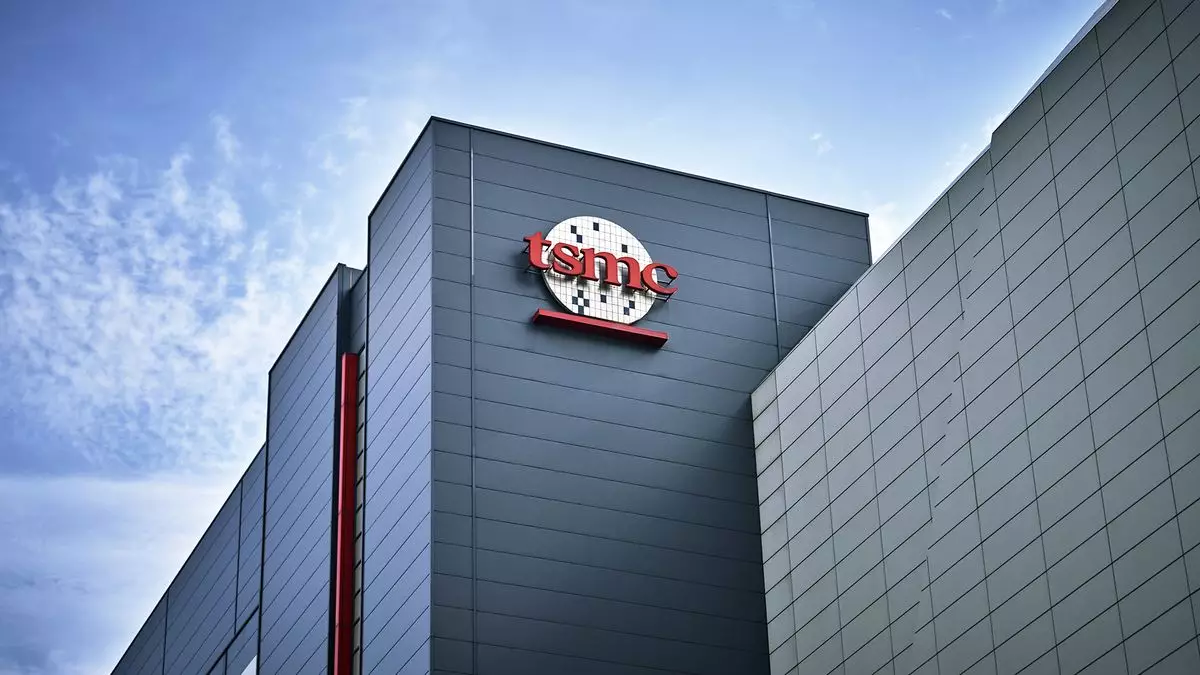The global semiconductor industry stands at a crucial juncture, especially with the largest player—Taiwan Semiconductor Manufacturing Company (TSMC)—facing the possibility of a hefty $1 billion fine. This situation stems from an investigation by the U.S. Department of Commerce, scrutinizing whether TSMC inadvertently breached export regulations concerning Huawei, the controversial Chinese tech giant. While $1 billion might not spell doom for a titan like TSMC, it does signal a shift in how international trade dynamics are enforced in the tech sector.
What makes this case so intriguing is the intricate web of regulations and the high stakes involved. With TSMC being integral to the global chip supply chain, any misstep could reverberate throughout industries relying heavily on semiconductors—smartphones, laptops, and increasingly, automotive technology. The implications are not merely financial; they delve deep into the structural integrity of global trade relations, particularly between the U.S. and China.
The Legal Labyrinth
TSMC’s potential fine stems from an alleged export control violation that ties back to a specific product: the Ascend 910B AI processor developed by Huawei. The crux of the matter is whether TSMC’s involvement with Huawei, through another intermediary, Sophgo, constitutes an infringement of U.S. regulations. According to reports, Sophgo has been placed on the U.S. Entity List, a move that escalates concerns regarding compliance and potential penalties.
This situation underscores the complexities of modern supply chains where the involvement of multiple stakeholders can cloud accountability. TSMC claims it hasn’t provided Huawei with any products since 2020, leaving room for speculation about whether its transactions were entirely above board. This ambiguity raises questions about the effectiveness of current export regulations and whether they adequately address the nuances of the global semiconductor market.
The Bigger Picture: Economic and Geopolitical Implications
While TSMC is certainly a behemoth in its field, this incident highlights the precarious position that even the most powerful companies are in, given the current geopolitical climate. The U.S.-China trade war has led to an increasingly hostile atmosphere where technology and national security intersect. For TSMC, which has recently committed to investing $100 billion in U.S. operations, the stakes are higher than ever.
Such investments are not just about capital infusion; they are about positioning. TSMC’s geographical and political location puts it at a crossroads of East-West relations, making any misstep particularly critical. The fates of numerous industries rely on the smooth operation of TSMC, and any volatility could lead to supply shortages or price spikes that consumers and manufacturers around the world would feel.
What’s Next for TSMC?
As the investigation unfolds, TSMC must navigate these turbulent waters carefully. Reports suggest that any fine could come in the form of a “charging letter,” allowing the company time to respond before any financial penalties are imposed. While this provides TSMC with an opportunity to assert its position, the broader context of intensified scrutiny from U.S. authorities could instigate a culture of caution within the semiconductor industry.
Moreover, leadership within TSMC will be under pressure to reaffirm compliance with international regulations while simultaneously maintaining operational relationships in China. If the U.S. government finds TSMC in breach of the rules, the implications could hinder its position as a trusted partner in global technology supply chains, setting a precedent that may deter future collaborations.
Innovation vs. Regulation
The delicate balance between fostering technological innovation and adhering to regulatory frameworks is a pressing dilemma. As TSMC grapples with its legal challenges, one must consider the long-term effects of these regulatory measures on tech advancement. Could stringent export controls stifle creativity and progress in the semiconductor field? While maintaining national security is vital, overregulation could lead to a fragmented global market that hampers technological advancements crucial for future prosperity.
As the semiconductor landscape continues to evolve, industry leaders must actively engage in discussions around best practices for compliance while advocating for reasonable regulations that safeguard innovation. What TSMC’s situation demonstrates is not only an immediate financial risk but also serves as a case study that could reshape how semiconductor companies view their international operations amid increasing scrutiny from governments worldwide.


Leave a Reply